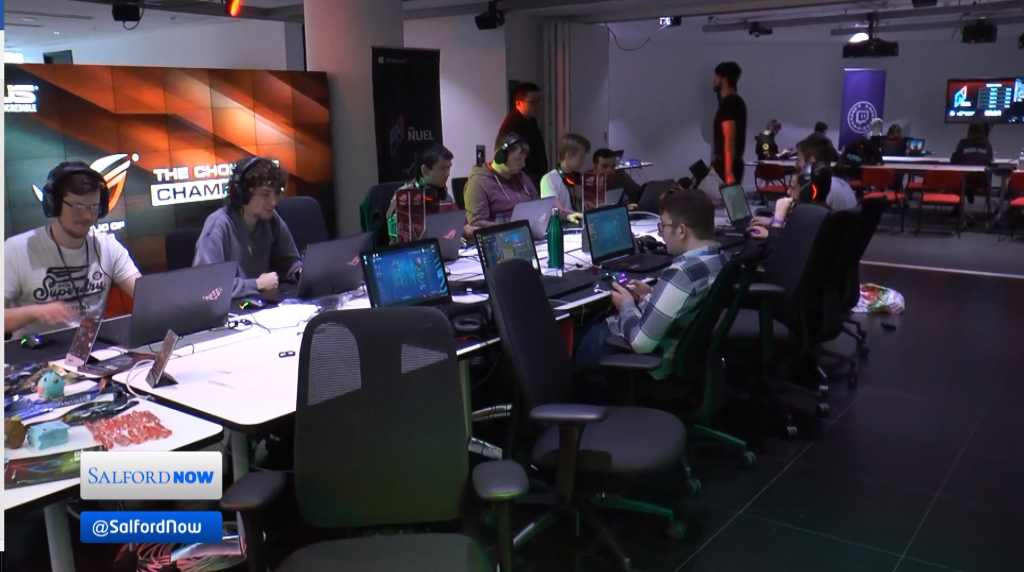
A member of the National University eSports League is looking to change the disproportionate number of women in eSports.
Monica Strauja voiced her concerns of gender imbalance in gaming at ‘The King of the North’ eSports tournament held at the University of Salford’s MediaCityUK campus.
“People think that a girl can’t stay at her laptop all day and spend our time playing games. There’s a presumption that women should do something else rather than sit at home but when a male does it, it’s completely fine”, she said.
The tournament, which took place on the 1st and 2nd of December was open to students and the public. It welcomed participants to compete in play-offs for popular competitive games, such as League of Legends and Overwatch.
Day 1 of King Of The North is underway in 3 hours, so hyped to be working with @UoMEsports on this, come on down to MediaCity to see some decent student esports or if you can’t attend watch the stream at https://t.co/PSYhLKTsuF !
— Oscar Williams (@SombreroBloke) December 1, 2018
“What I’m trying to do is bring females into gaming through societies, for example. This will make them feel more comfortable because otherwise there’s literally just guys there”, Strauja said.
“eSports is very highly dominated by males. I don’t have a problem with that association because it is – but bringing in more females would be beneficial.”
Daniel Shields, the eSports Society Production Manager at the University of Manchester thinks eSports needs to be more welcoming to a wider range of people.
“We’re always looking to diversify our talent crew but eSports in general can be very competitive and I think this can be quite off-putting, but there are a lot of girls who would otherwise be interested.
“I’d say that if they don’t approach me or aren’t prominent enough in the scene, they’re not going to be apparent to us.
“That’s why you see women’s leagues for different games specifically popping up. There’s nothing stopping them from playing in ‘men’s’ leagues, it’s just that they’ve not had the opportunities given to them.”
Project Leader of King of the North, Felix Dian believes that video games are geared towards males.
“That’s the nature of these events, but it’s quite sad that we’re being targeted as a demographic of young men because it should be more of a universal thing.”
Strauja believes that as eSports continues to grow, it is becoming less gender-related, stating: “I think the way we’re moving forward, it’s becoming much more okay for both genders.”
eSports events commonly consist of participants playing against each other in organised video game competitions.
It has only been a significant part of video game culture since the early 2010’s but since breaking into mainstream media, it has gathered massive global viewership. The total revenue for eSports in 2017 was $665 million.
In 2012, the professional e-sports organisation, Major League Gaming approximated that 85% of viewership was male.














Recent Comments